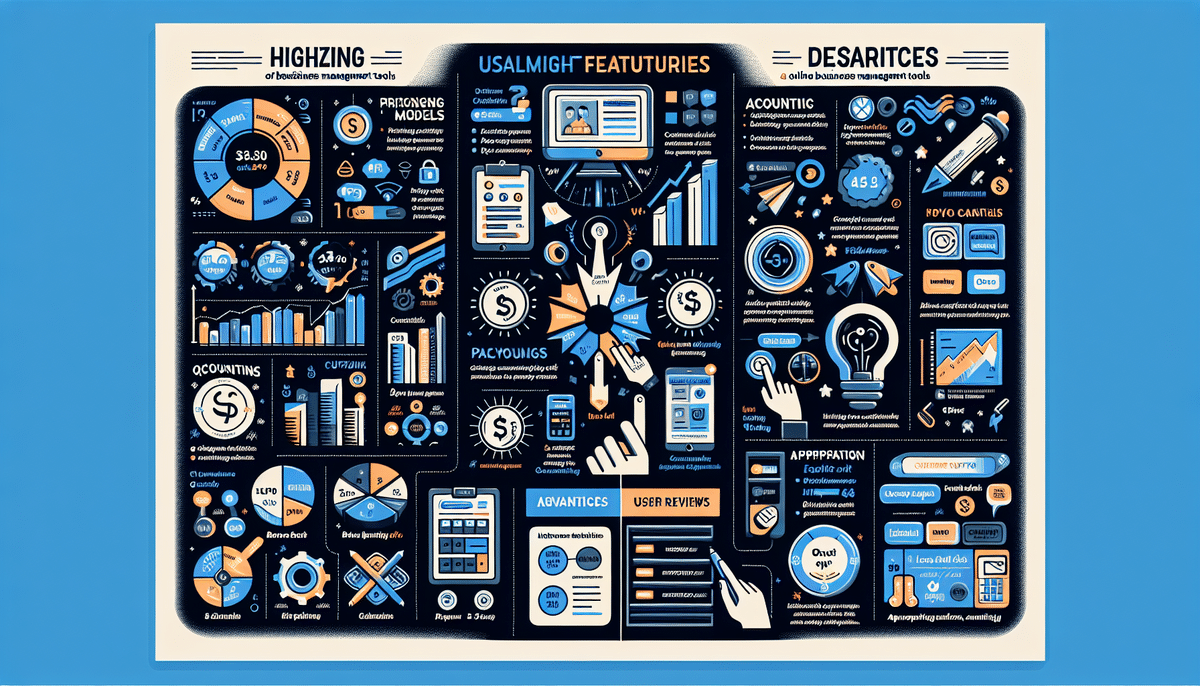Connecting, Optimizing, and Managing UDS for FreeAgent: A Comprehensive Guide
As a business owner, keeping track of your financial data is crucial for the success and growth of your company. FreeAgent is a cloud-based accounting solution that helps you manage your finances efficiently. To maximize FreeAgent's potential, it's essential to connect it with UDS (User Data Service) and optimize the integration to suit your business needs. This guide provides an in-depth analysis of how to connect, optimize, and manage UDS for FreeAgent, all for free.
Understanding UDS and Its Importance for FreeAgent
UDS is an Application Programming Interface (API) that enables access, storage, and retrieval of data from various sources, including FreeAgent. By integrating FreeAgent with UDS, businesses can automate financial processes, ensuring accurate and up-to-date information. This integration allows for real-time data access and the creation of customized reports and dashboards tailored to specific business needs.
Benefits of UDS Integration
- Automation: Streamlines data transfer, reducing manual input and minimizing errors.
- Customization: Configures data to meet specific business requirements, providing targeted insights.
- Increased Efficiency: Enhances workflow by integrating with other tools like CRM systems, project management software, and e-commerce platforms.
Moreover, UDS ensures secure and reliable data transfer between FreeAgent and other applications, facilitating seamless integration and reducing the risk of data breaches.
The Benefits of Optimizing UDS for FreeAgent
Optimizing UDS for FreeAgent offers numerous advantages:
Enhanced Data Accuracy
With UDS, data remains consistent and current, significantly reducing errors and discrepancies. This reliability supports informed business decisions and enhances overall company performance.
Real-Time Data Synchronization
Real-time updates allow businesses to access the latest financial information, essential for timely reporting and analysis. According to a Forbes article, real-time data synchronization can improve financial decision-making by up to 30%.
Streamlined Workflows
Integrating UDS with FreeAgent automates tasks such as invoicing, expense tracking, and financial reporting, saving time and reducing the potential for manual errors.
How to Connect UDS to FreeAgent
Connecting UDS to FreeAgent is a straightforward process:
- Register for UDS: Sign up for a UDS account and obtain your user ID and access key.
- Access FreeAgent: Log in to your FreeAgent account.
- Navigate to Integration Settings: Go to the UDS integration section within your account settings.
- Enter Credentials: Input your UDS user ID and access key to establish the connection.
- Verify Integration: Ensure that the integration is successful by checking data synchronization.
Once connected, UDS seamlessly transfers data between platforms, ensuring that your financial information remains accurate and up-to-date.
Step-by-Step Guide to Optimizing UDS for FreeAgent
Optimizing UDS involves several key steps to ensure it aligns with your business needs:
- Identify Your Business Needs: Determine the financial metrics you need to track, such as revenue, expenses, cash flow, and profitability.
- Configure UDS: Set up data sources, filters, and mappings within UDS to reflect your business requirements.
- Map Your Data: Align UDS data fields with FreeAgent's structure to ensure accurate data transfer.
- Test and Validate: Conduct tests to confirm that data is correctly transferred and displayed in FreeAgent.
- Monitor and Optimize: Regularly review the integration to identify and implement improvements.
Regularly analyzing your financial data post-integration helps identify trends and areas for improvement, enabling informed decision-making.
Tips for Managing UDS Effectively with FreeAgent
Effective management of UDS involves adhering to best practices:
- Regular Monitoring: Continuously oversee the integration to ensure data accuracy and timeliness.
- Data Validation: Routinely check for and rectify any data errors or inconsistencies.
- Optimization: Adjust settings and configurations as your business needs evolve.
- Security: Implement robust security measures to protect sensitive financial data.
Employee Training
Ensure your team is well-trained in using UDS and FreeAgent. Proper training minimizes errors and maximizes the system's potential. Consider providing regular training sessions and creating comprehensive user guides.
Common Issues with UDS Integration and How to Troubleshoot Them
Despite its benefits, integrating UDS with FreeAgent can present challenges:
- Data Inconsistencies: Misconfigurations or incorrect data mappings can lead to discrepancies between UDS and FreeAgent.
- Data Overload: Excessive data transfer can cause FreeAgent to slow down or crash.
- Data Duplication: Mapping errors may result in duplicate entries within FreeAgent.
To address these issues:
- Validate Your Data: Regularly check data accuracy and consistency.
- Optimize Configurations: Ensure UDS settings are correctly aligned with FreeAgent requirements.
- Implement Data Filters: Limit the amount of data transferred to prevent overload.
Another common issue is data loss, which can occur due to integration errors. To prevent data loss, regularly back up your data and monitor synchronization processes.
Security Concerns: Protect sensitive information by using encryption and adhering to data protection regulations like GDPR and CCPA.
Leveraging UDS Data in FreeAgent for Better Financial Management
Utilizing UDS data within FreeAgent can significantly enhance financial management:
Data-Driven Decision Making
Analyze UDS data to identify financial trends, track performance, and make informed business decisions. According to a Harvard Business Review article, data-driven companies are 23 times more likely to acquire customers.
Financial Forecasting
Use historical data to predict future financial performance, aiding in budgeting and strategic planning.
Stakeholder Reporting
Create customizable reports and dashboards to share key financial metrics with stakeholders, fostering transparency and trust.
Best Practices for Using UDS with FreeAgent to Improve Business Performance
Adhering to best practices ensures optimal use of UDS and FreeAgent:
- Regular Data Validation: Continuously verify data accuracy.
- Customization: Tailor data configurations to meet specific business needs.
- Automation: Automate repetitive financial processes to enhance efficiency.
- Security Compliance: Maintain compliance with data protection laws and implement security best practices.
Continuous Improvement
Regularly review and analyze your financial data to identify areas for improvement and implement necessary changes.
Automating UDS Processes with FreeAgent for Greater Efficiency
Automation streamlines financial operations, saving time and reducing errors:
- Customize UDS Configuration: Set up data mappings and filters tailored to your business needs.
- Set Up Data Mappings: Align UDS data fields with FreeAgent to ensure seamless data transfer.
- Schedule Automated Tasks: Configure tasks like data transfers, validations, and report generation to run automatically.
FreeAgent's user-friendly interface allows you to monitor and track UDS processes in real-time. You can view live data updates and receive alerts for any issues, ensuring you stay informed and can respond promptly.
By automating these processes, you not only enhance efficiency but also ensure that your financial data remains accurate and up-to-date, facilitating better business decisions.
Customizing Automation
Tailor FreeAgent’s automation features to align with your specific business workflows. This customization can further streamline operations and enhance productivity.
For more detailed information and updates on integrating UDS with FreeAgent, refer to the FreeAgent Support Center.








